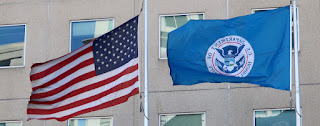On August 14, 2019, the United States Citizenship and Immigration Services (USCIS) announced that the Department of Homeland Security (DHS) had published a final rule in the Federal Register regarding the public charge ground of inadmissibility [PDF version]. The rule, which runs 217 pages, will become effective on October 15, 2019 [PDF version]. In this post, we will examine the key points of the new public charge rule. We will publish a comprehensive article on the public charge rule before its effective date.
The USCIS explains in its summary that the rule defined the term “public charge” as reaching an alien who receives benefits for more than 12 months, in the aggregate, out of any 36 month period. Thus, if an alien receives two benefits in one month, the USCIS would consider that two months toward the 12 month limit. The rule will render certain nonimmigrants who received designated public benefits above the new threshold ineligible for change of status or extension of stay if they received the benefits after obtaining the nonimmigrant status they seek to change or extend. The public charge rule will not apply, however, to “humanitarian-based immigration programs for refugees, asylees, Special Immigrant Juveniles (SIJs), certain trafficking victims (T nonimmigrants), victims of qualifying criminal activity (U nonimmigrants), [] victims of domestic violence (VAWA self-petitioners), among others.”
The public charge rule will expand the ambient of benefits considered in public charge determinations. The term “public benefit” will now be interpreted to include “any cash benefits for income maintenance, Supplemental Security Income (SSI), Temporary Assistance to Needy Families (TANF), Supplemental Nutritional Assistance Program (SNAP), most forms of Medicaid, and certain housing programs.” It is worth noting that the public charge rule does not treat the Special Supplemental Nutrition Program for Women, Infants, and Children (WIC) as a public benefit for public charge determinations, despite there having been speculation that it would do so. The definition of public benefit will also not include “benefits received by individuals who are serving in active duty or in the Ready Reserve component of the U.S. armed forces, and their spouses and children; public benefits received by certain international adoptees and children acquiring U.S. citizenship; Medicaid for aliens under 21 and pregnant women; Medicaid for school-based services (including services provided under the Individuals with Disabilities Education Act); and Medicaid benefits for emergency medical services.”
While the public charge rule greatly expands the scope of the public charge inadmissibility ground, it also defines the USCIS's discretionary authority to, in limited circumstances, allow an alien who is inadmissible only on public charge grounds to post a public charge bond in order to gain admission. The minimum public charge bond amount provided for by the rule is $8,100. The actual amount of public charge bond in any given case will depend on the alien's individual circumstances.
The public charge rule will only apply to applications and petitions postmarked (or submitted electronically, if applicable) on or after the effective date of October 15, 2019. This means that applications and petitions already pending with the USCIS on the effective date will be considered under the former public charge rules.
The public charge rule reflects one of the most significant immigration policy changes in recent years, and it will force many noncitizens in the United States to make difficult choices in the future. Although the rule will likely be subject to litigation and may be enjoined, noncitizens should plan as if the rule will take effect as planned on October 15, 2019. Those with questions about what the rule means for their current or future plans should consult with an experienced immigration attorney for a case-specific assessment. As we noted at the top, we will publish a comprehensive article on the new public charge rule before it takes effect on October 15, 2019.
Please visit the nyc immigration lawyers website for further information. The Law Offices of Grinberg & Segal, PLLC focuses vast segment of its practice on immigration law. This steadfast dedication has resulted in thousands of immigrants throughout the United States.
Lawyer website: http://myattorneyusa.com

No comments:
Post a Comment